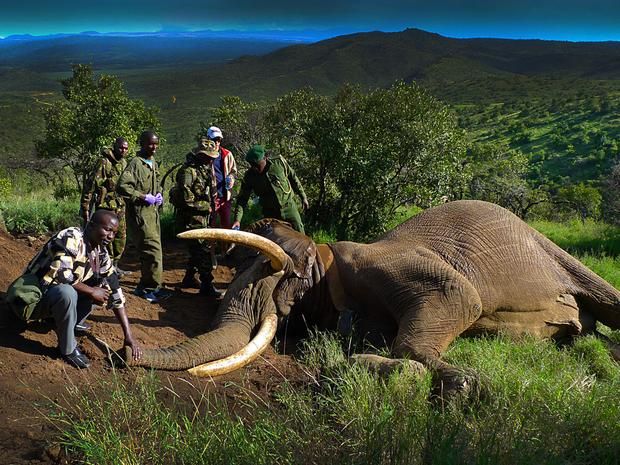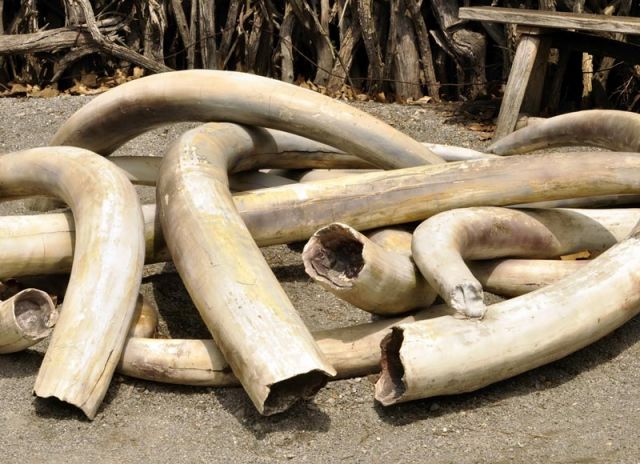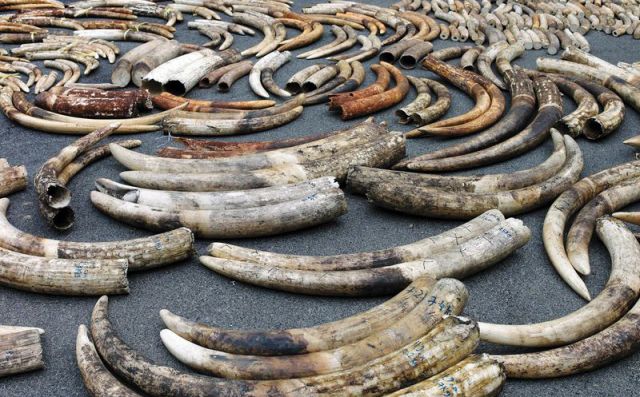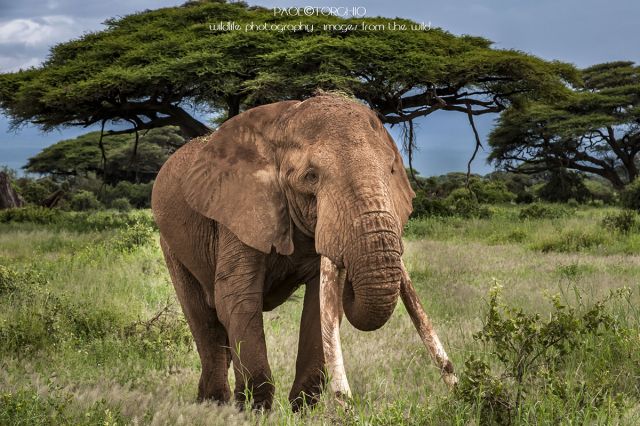
MORE ELEPHANTS KILLED
25-09-2023 by Freddie del Curatolo

It seems absurd, as well as anachronistic and also economically unprofitable these days, that there is still ivory trafficking in Africa and poachers kill elephants.
Absurd but it is so.
In recent days in Kenya, rangers from the National Wildlife Service (Kws) have discovered ten pachyderms killed on the edge of Meru National Park. Almost all of them had their tusks sawed off. The hunt for traffickers was launched and two suspects were arrested, with three tusks totalling 53 kg of ivory with an estimated value of 70,000 euro. That's what an elephant can be worth, around 35,000 euros.
But the value is not at first sale, it is the estimated commercial value. The two poachers arrested, who according to Kenyan law risk 7 years and upwards, up to life imprisonment (years ago a parliamentary committee had proposed the death penalty for poaching, but that would have been like adding absurdity to absurdity), would have sold the ivory for much less to those who would then ship it to the East at that price.
So the life of an elephant is worth far less.
This in 2023, when it is now 34 years since the ban on international trade in ivory came into force and, above all, there seems to be no other reason to possess it than the aesthetic pleasure of having objects made of the precious material, without, moreover, being able to exhibit them publicly.
In short, it would be more comprehensible to see poachers in action in search of coltan and other 'rare earths' to resell to the technology market (alright, but that is more or less legally already done by the multinationals without the need for smugglers) or, as is really the case, the trafficking of wildlife for the sale of meat on the market.
Two years ago, in an exemplary sentence, two poachers in Voi, Kenya, were each sentenced to sixteen years in prison for being found in possession of 167 Dikdik ready for slaughter. In the town of Embu, on the other hand, police discovered a trade in monkey meat that ended up on 'street food' stalls in the form of kebabs.
It is a gruesome, desperate, but all in all understandable context, unlike those who still risk years in jail by going around killing elephants, because there is still someone in the world who demands ivory.
And this someone, even more than the wretches who throw poisoned darts at the poor animal and then plunder it of its tusks, deserves life imprisonment in a nice, white, shiny ivory prison.

The last seizure took place yesterday in Vietnam, a hundred pounds of rhino horns from Kenya, reports the sad topicality smuggling related to protected species of the African savannah.
The battle against poachers who kill elephants also proceeds with encouraging...
NEWS
by redazione

The Coronavirus emergency, partial lockdowns in counties and night curfews in Kenya do not curb the...
WILDLIFE
by Leni Frau

The year of the rhino. The year 2020 for conservation in Kenya will be remembered as the first...
WILDLIFE
by redazione

African elephants are starting to be born without tusks, as a genetic protection to avoid being killed by...

They were probably well hidden for some time, because since the beginning of the year in...
WILDLIFE
by redazione

Fighting against poaching and the international ivory ban are yielding their fruits: in three years the number of elephants in Kenya has increased almost 15 percent (14.7 for precision).
The announcement was made by the Kenya Wildlife Service, thanks to the...
NEWS
by redazione

For the first time the online platform Netflix will broadcast a film produced and...
NEWS
by Leni Frau

May the land of the savannah be mild to the oldest elephant in Tsavo East who left his homeland to join, as...
ENVIRONMENT
by Leni Frau

He was one of Amboseli's most imposing, hieratic elephants.
Tolstoy, so named...